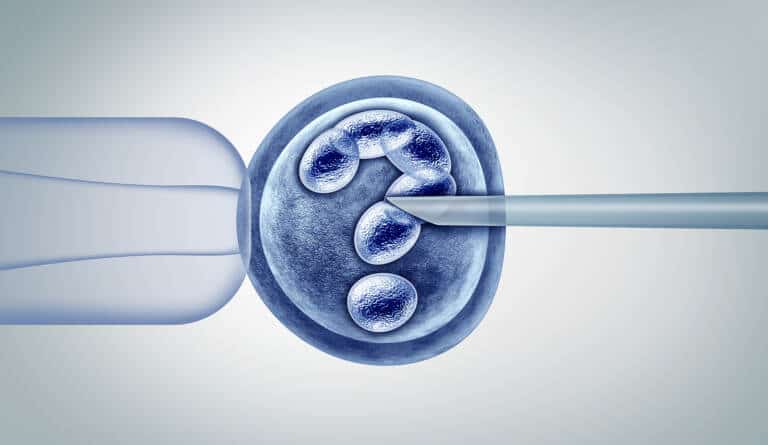The post The Potential of Artificial Intelligence in Improving IVF Success Rates appeared first on TheAussieway.
]]>
Key Takeaways :
- Discover the need for additional tools in embryonic screening
- Explore operator bias in Manual Embryonic Morphological Assessment
- Know about the AI-driven method, STORK-A for Predicting Ploidy Status
- Understand the Barriers to Clinical Usage of AI Tools in IVF
- Realize the Importance of Large-Scale RCTs for Validation and Regulatory Approval
For individuals battling infertility, in-vitro fertilization (IVF) is widely considered a feasible option, even though its success rates have always remained dubious.
However, things are about to change.
It’s not too far before we witness a future-bending technology like Artificial Intelligence (AI) brought to the clinical scene, especially for IVF.
Introducing STORK-A

A recent study published in The Lancet Digital Health by Josue Barnes and colleagues introduced an innovative AI-driven method called STORK-A. Reportedly, this non-invasive technique can predict the ploidy status of embryos, thereby making it easy to select healthy blastocysts for implantation.
But before we go further exploring the potential of this method, one must know that STORK-A will never be used as a replacement option for conventional preimplantation genetic testing for aneuploid status (PGT-A). Instead, it would strictly act as a complementary way to assist clinicians in their decision-making.
Furthermore, STORK-A is still largely a proof-of-concept approach, backed by one of the largest studies of its kind. Thus, any external validation will only demonstrate the integrative potential of AI under pre-decided clinical settings for embryo selection.
Since 2020, multiple studies have showcased the promise of AI tools in embryo selection. Take the Convolutional Neural Network (CNN) tool, for instance, developed by Sonya Diakiw and colleagues, which resulted in about a 12% reduction in time-to-pregnancy.
Among other notable mentions are Charles Bormann and colleagues‘ studies, where CNN outperformed 15 embryologists in accurately predicting embryos with the highest implantation potential. Such findings underscore the potential of Artificial Intelligence in Improving IVF.
Hiccups Along The Way

Despite a string of encouraging results, a bunch of barriers hinder the clinical implementation of AI tools for IVF.
Starting with the “black box effect,” which is caused by the “complexity and proprietary algorithms” that are seen in typical AI-based approaches. A good way to address this would be to opt for interpretable and transparent models to do away with hidden biases.
Furthermore, there is a lack of solid medical evidence that digital tools can actually improve IVF, which is a limitation.
Is There Any Fix?
A handful of first-base approaches have been identified to act as an immediate fix and include:
- Rigorous evaluation via high-quality Randomised Controlled Trials (RCTs) to assess the efficacy of AI-driven tools for embryo selection. A necessary doing before any regulatory approval comes through for widespread clinical adoption.
- In the absence of published RCTs evaluating AI-driven tools meant specifically for IVF, externally robust and validated approaches and subsequent validation can come in handy.
- Furthermore, it is necessary to consider the long-term health outcomes of children conceived through AI-assisted IVF. There is strong evidence that assisted reproductive technologies can lead to adverse effects for the child during the nascent and adolescent years, like cardiovascular dysfunction.
- The need for follow-up studies assessing the health of children born through AI-assisted IVF is imperative to gain comprehensive insights into any potential implications.

AI-assisted embryo selection- Diversity and Inclusivity Holding The Key

Inclusive participation across multiple trials and studies is vital to ensuring generalizability and equitable benefits.
A systematic review and meta-analysis from 2022 have already revealed the inherent disparities in IVF outcomes. especially with black women experiencing higher rates of spontaneous abortions and lower live birth rates compared to white females.
Although recent studies conducted by Hajirasouliha and colleagues offered validation across multiple populations, the disparity of race or ethnicity data of participants still remains a vital aspect for all forms of future research.
The Way Forward
Undoubtedly, the integration of AI in embryo selection for IVF holds untold potential for the future.
However, significant challenges lie ahead that will call for repeated reassuring on multiple grounds before such methods can become a part of routine clinical decisions.
Sure, large-scale RCTs encompassing diverse populations with external validation have a way out, but the current scenario calls for deep evaluation of externally validated AI approaches to establish befitting clinical value.
The post The Potential of Artificial Intelligence in Improving IVF Success Rates appeared first on TheAussieway.
]]>